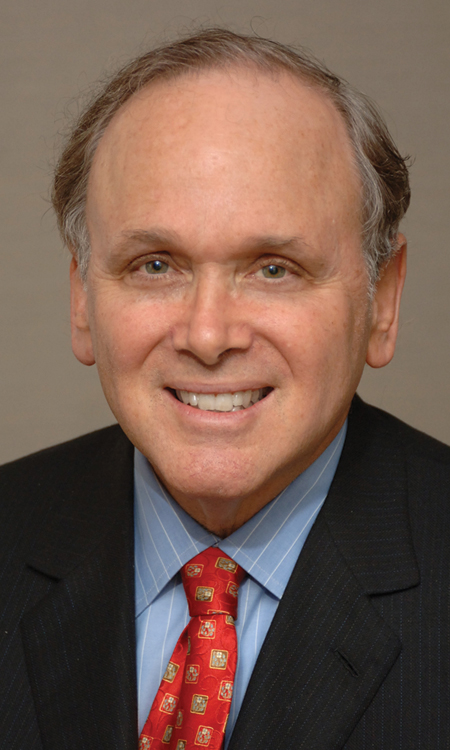Pulitzer Prize winning author Daniel Yergin to speak at Lehigh
Pulitzer Prize winning author Daniel Yergin — described by The New York Times as “America’s most influential energy pundit” — is coming to Lehigh on Wednesday, April 16, to discuss energy, globalization, and geopolitics.
His free public lecture will begin at 8 p.m. in Baker Hall of the Zoellner Arts Center. It is sponsored by Jeanne and Herbert J. Siegel ’50.
“Mr. Yergin is one of the world's foremost authorities on geopolitics and energy, and his visit to Lehigh could not be more timely,” said Herbert Siegel. “With so many current world events bringing these issues to the forefront, Mr. Yergin's insights will be extremely valuable. With his grasp of both the academic and practical complexity of these issues, Jeanne and I can't think of anyone more qualified to discuss the past and the future of energy than Mr. Yergin. We are pleased he agreed to enlighten us for what I'm sure will be an engaging discussion.”
Yergin is the author of the recent bestseller The Quest: Energy, Security, and the Remaking of the Modern World, which The Economist called “a masterly piece of work” and The New York Times said is “necessary reading for CEOs, conservationists, lawmakers, generals, spies, tech geeks and thriller writers.”
He is known worldwide for his book “The Prize: the Epic Quest for Oil Money and Power,” which won the Pulitzer Prize, was a number one New York Times best-seller, and has been translated into 17 languages. His book Commanding Heights: the Battle for the World Economy was described by The Wall Street Journal as the best “account of the world’s political and economic destiny since World War II.”
Yergin is vice chairman of IHS, one of the world’s largest research and information companies, and founder of IHS Cambridge Energy Research Associates. He serves on the U.S. Secretary of Energy Advisory Board.
“We are we are very happy to bring him to speak to the Lehigh community on the critical subjects of our day, and we are extremely grateful for the support of Herb and Jeanne Siegel to help make this event happen,” said Gast.
Yergin is also a regular commentator on current events and has been in the news lately to offer his view of the turmoil in Ukraine and Russian President Vladimir Putin’s likely response.
Although Putin holds the power to cut off nearly a third of Europe’s natural gas supply and punish Ukraine and other neighboring countries that offer aid, Yergin said in early March that he thinks that prospect is unlikely.
More recently, Yergin argued during a speaking engagement in Ottawa that the map of world energy is being redrawn in front of our eyes — and not to Putin’s advantage, according to a report in the National Post.
Yergin said the energy revolution in the United States has created a “new dimension” to American foreign policy, while “the bloom is off the rose” of Russian energy production, in part because of the flight of capital in the wake of Putin’s Crimean adventure, the Post reported.
“I think it [cheap domestic energy] bolsters U.S. power by making the U.S. more competitive in the world economy,” said Yergin, who noted that a consequence of Putin’s behavior is that European and North American businesses will be forced to “recalculate their risk, in terms of investing in Russia.
“Russia was relying on foreign investment to bolster its economy, but you can just imagine the discussions in boardrooms when you say you want to invest in Russia,” he said.
Whether it’s dealing with the environmental impact of the shale gas boom in the United States or oil sands development in Canada, Yergin told The Star that “the answers are going to come from technology.”
Posted on:


